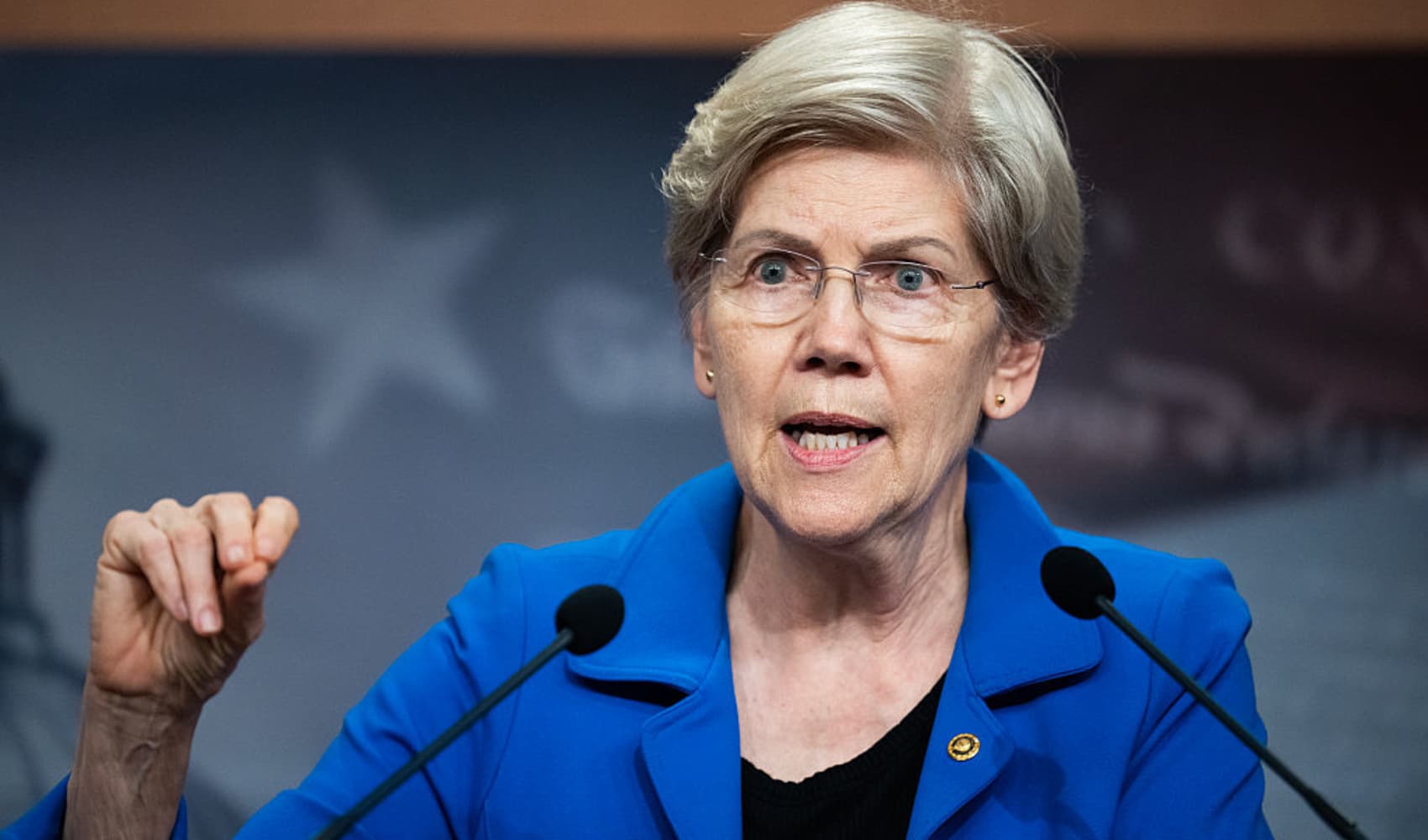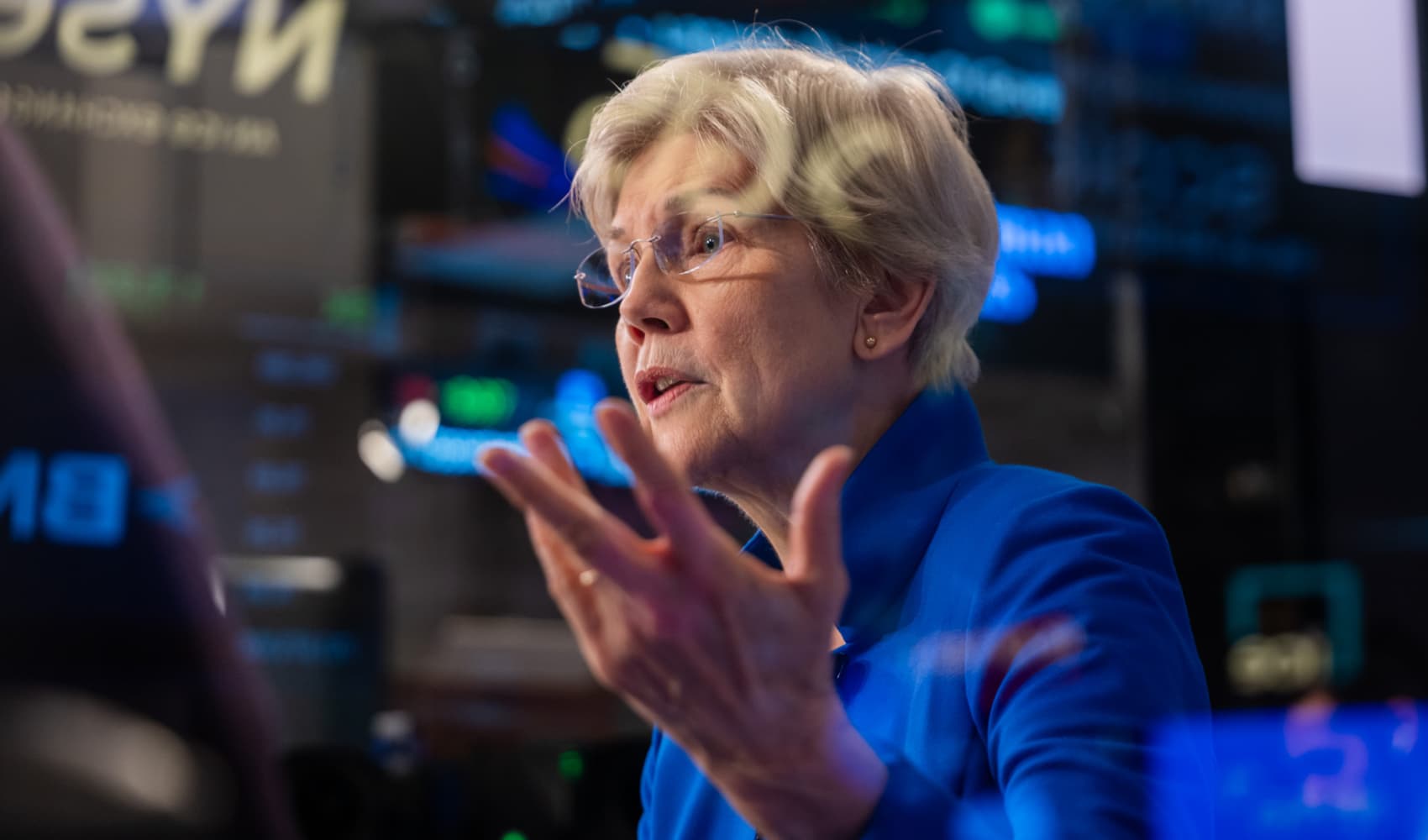Trump's Tariffs: Are They Fueling Corruption? Dems Allege
Trump's Tariffs: A Corruption Magnet? Democrats Sound the Alarm
Introduction: The Price of Protectionism – Is It More Than We Think?
Remember the old saying, "There's no such thing as a free lunch?" Well, it turns out that President Trump's tariffs, intended to protect American industries, might be costing us a whole lot more than just higher prices at the checkout. A growing chorus of Democrats, led by Senator Elizabeth Warren, is now alleging that these tariffs are not just economically questionable, but also, potentially, a breeding ground for corruption. Are these just political accusations, or is there legitimate cause for concern? Let's dive into the details.
The Democrats' Letter: A Cry for Transparency
A letter signed by nearly 50 Democratic members of Congress has been sent to key figures in the Trump administration: Commerce Secretary (incorrect, Wilbur Ross at the time) Howard Lutnick, Treasury Secretary Scott Bessent and Trade Representative Jamieson Greer. This letter directly accuses the Trump administration of turning tariffs into a "corrupt scheme." But what exactly are they alleging?
Who Are the Targets?
- Secretary Howard Lutnick: While the letter mentions Secretary Lutnick, it's important to note that Wilbur Ross was the Secretary of Commerce during the Trump administration when these tariffs were implemented.
- Secretary Scott Bessent: Responsible for the Treasury, and therefore, deeply involved in the financial implications of trade policies.
- Trade Representative Jamieson Greer: Plays a critical role in negotiating and implementing trade agreements.
The choice of these recipients highlights the Democrats’ belief that the problem spans across multiple departments within the administration.
"Inviting Corruption": What Does That Even Mean?
The letter doesn't mince words. It claims that "Tariffs are inviting corruption not only through quid-pro-quo arrangements but also through officials' personal investments." But what does that actually look like in practice?
Quid-Pro-Quo Arrangements: Trading Favors for… What?
Think of it as a hand-in-glove scenario. A company might receive special tariff exemptions or benefits in exchange for political donations, lucrative contracts for friends or family, or other forms of personal gain for those in power. Is this happening? That's the question the Democrats are demanding answers to.
Personal Investments: Profiting from Trade Wars?
This is where things get even murkier. Imagine an official responsible for setting tariffs who also has significant investments in companies that directly benefit from those tariffs. Isn't that a massive conflict of interest? Could their decisions be influenced by the potential for personal financial gain? It's a reasonable question to ask.
A Closer Look at the Trump Administration's Trade Policy
The Trump administration's trade policy has been characterized by its aggressive use of tariffs, particularly against China and other major trading partners. But was this strategy truly beneficial for the American economy, or did it primarily benefit certain individuals and corporations with close ties to the administration? This is the crux of the debate.
The Impact on American Consumers
Let's be honest, tariffs are essentially taxes on imports. And who ultimately pays those taxes? Consumers. Increased tariffs lead to higher prices for goods, from clothing to electronics to steel. This directly impacts the wallets of everyday Americans.
The Impact on American Businesses
While some domestic industries might benefit from tariffs, others suffer. Businesses that rely on imported materials face higher costs, making them less competitive in the global market. And when other countries retaliate with their own tariffs, American exporters get hit hard.
Senator Warren's Crusade Against Corruption
Senator Elizabeth Warren has made fighting corruption a central theme of her political career. Her involvement in this issue is not surprising, given her long-standing concerns about the influence of money in politics.
Warren's Stance on Corporate Influence
Warren believes that corporations have too much power and influence over government policy. She has consistently advocated for stricter regulations and greater transparency to prevent corruption and ensure that the government serves the interests of the people, not just wealthy corporations.
Potential Implications for the 2024 Election
While this specific incident might not be a major talking point in the 2024 election, the broader issue of corruption and government ethics will undoubtedly play a role. Voters are increasingly concerned about the integrity of their elected officials and the potential for abuse of power. Any perceived whiff of corruption could be damaging to candidates on either side of the political spectrum.
The Need for Transparency and Accountability
Regardless of your political affiliation, the issue of government transparency and accountability should be a top priority. We, as citizens, have the right to know that our elected officials are acting in our best interests, not their own.
The Role of Oversight Committees
Congressional oversight committees play a crucial role in holding government officials accountable. They have the power to investigate potential wrongdoing and subpoena documents and witnesses. A thorough investigation into these allegations is essential to determine whether any laws have been broken.
The Importance of Whistleblower Protection
Whistleblowers are often the first to expose corruption and wrongdoing within government agencies. It is crucial that they are protected from retaliation and that their concerns are taken seriously.
Beyond Tariffs: The Broader Problem of Influence
The allegations surrounding Trump's tariffs are just one example of the broader problem of influence in politics. From lobbying to campaign finance to the revolving door between government and the private sector, there are countless ways for wealthy individuals and corporations to exert undue influence over government policy.
Campaign Finance Reform
The current system of campaign finance allows wealthy donors to contribute vast sums of money to political campaigns, giving them disproportionate influence over elected officials. Campaign finance reform is essential to leveling the playing field and ensuring that all voices are heard.
Lobbying Regulations
Lobbying is a legitimate form of advocacy, but it needs to be properly regulated to prevent abuse. Stricter lobbying regulations are needed to increase transparency and prevent special interests from dominating the political process.
The Stakes Are High: Protecting Democracy
Ultimately, the fight against corruption is a fight for the very soul of our democracy. When the public loses faith in the integrity of its government, the foundations of our society are weakened. We must demand transparency, accountability, and ethical conduct from our elected officials.
Restoring Public Trust
Restoring public trust in government requires a multi-pronged approach, including stricter ethics laws, greater transparency, and a renewed commitment to public service. It also requires a change in culture, where elected officials prioritize the public good over personal gain.
Conclusion: A Call for Action
The allegations surrounding Trump's tariffs are serious and deserve a thorough investigation. While the full extent of any potential corruption remains to be seen, the issue highlights the broader need for greater transparency and accountability in government. We must demand that our elected officials act in our best interests, not their own. As citizens, we have a responsibility to hold them accountable and ensure that our democracy remains strong.
Frequently Asked Questions (FAQs)
- What exactly are tariffs?
Tariffs are taxes imposed on imported goods. They are designed to make imported goods more expensive, thereby protecting domestic industries from foreign competition.
- Why are Democrats claiming Trump's tariffs are inviting corruption?
Democrats are alleging that the tariffs could be used as a tool for quid-pro-quo arrangements and to benefit officials with personal investments in industries affected by the tariffs.
- How do tariffs affect the average consumer?
Tariffs typically lead to higher prices for imported goods, which can increase the cost of living for consumers.
- What can be done to prevent corruption in government?
Possible solutions include stricter ethics laws, increased transparency, campaign finance reform, and whistleblower protection.
- Who was the actual Secretary of Commerce during most of Trump's administration?
Wilbur Ross served as the Secretary of Commerce during the majority of the Trump administration's term. Howard Lutnick was incorrectly mentioned in the original source material.

